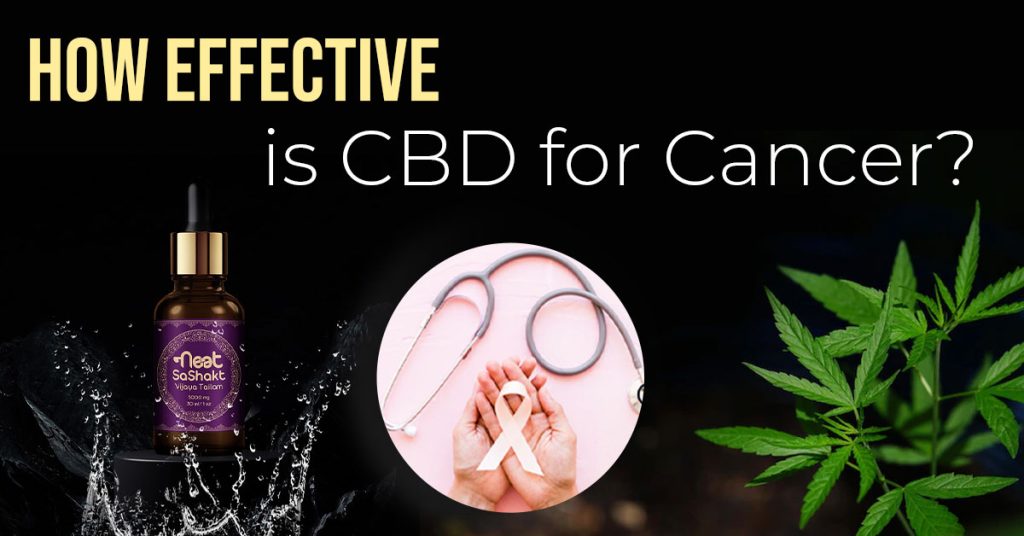The cannabis plant contains various cannabinoids, including cannabidiol, generally known as CBD. In some online communities, it has been promoted as an alternative treatment and even a cure for numerous illnesses, including cancer. Additionally, some cancer patients claim that using CBD for cancer as a supplemental medicine has helped them manage their symptoms and adverse effects of conventional cancer treatment.
However, the study on CBD and its application in the treatment of cancer patients is scant. Here’s what you need to know about CBD and what the latest research indicates regarding its safety and efficacy for cancer patients.
One of the numerous cannabinoids in the hemp plant, CBD is well known for its calming and analgesic properties. Since CBD is not psychoactive, it does not provide the “high” effect associated with THC (tetrahydrocannabinol).
There are several ways to consume CBD, including tinctures, pills, topicals, oils, and even vape liquids. But what exactly is CBD oil, and how do people use CBD for cancer? It is too soon to declare CBD a viable cancer treatment. Although the preliminary findings of tiny experiments on cancer cells are encouraging, they are not yet definitive.
Using CBD for Cancer
CBD has been promoted in certain internet communities as a complementary medicine option or cancer cure. Additionally, some cancer patients claim that using CBD as a supplemental medicine has helped them manage their symptoms and adverse effects of conventional cancer treatment.
Although the research is still in its very early stages, experts believe that CBD may help treat cancer by reducing the growth of tumors. Patients may also use CBD for chronic pain, nausea, vomiting, and unpleasant side effects of chemotherapy and cancer treatment with CBD. Meanwhile, this substance may help control a few cancer side effects and symptoms.
Researchers are investigating numerous more connected uses of CBD to relieve chronic pain and anxiety. Understanding that CBD differs from tetrahydrocannabinol (THC), a distinct cannabis component that induces intoxication, is critical.
However, the study on CBD and its application in the treatment of cancer patients is scant. However, compelling evidence suggests marijuana can inhibit tumor growth in cancer animal models. Additionally, the efficacy of certain drugs may be improved by CBD.
Can CBD prevent cancer?
More focus has been placed on cancer prevention as the prevalence of various malignancies has increased. It is widely accepted that lifestyle factors, such as food, exercise, and stress levels, significantly impact cancer development. Cancer prevention is essential because the disease can spread quickly and uncontrollably once the tumors cells grow. If cancer is discovered early, there is also a larger possibility that you can treat it with chemotherapy or radiation.
Mixed results have been found in studies on the function of cannabis in the onset of cancer. Although it has been discovered that cannabinoids, particularly THC, can inhibit the immune system, it is still unclear if this raises the risk of cancer. The study of CBD’s potential to prevent cancer is still in its early stages. Long-term studies of persons using certain CBD products will need to be conducted by researchers, controlling for factors like frequency of usage, dosage, and other factors.

Can CBD treat cancer?
Numerous research suggests CBD may have anti-cancer properties; however, most of these studies only include in vitro and animal models. For instance, there is evidence from numerous studies that CBD slows the development of lung and prostate tumors, triggers the death of colon, lung, and brain cancer cells, and lessens the spread of breast cancer.
Various adverse effects, including nausea and appetite loss, can result from cancer treatments, including chemotherapy and radiation, which can cause weight loss. Cannabinoids may help with some symptoms, including nausea and neuropathic pain. Cancer and cancer treatments have been demonstrated to enhance low appetite, although CBD can reduce it. Additionally, the anti-inflammatory and anti-anxiety effects of CBD are thought to exist.
The cannabinoid-based medications Dronabinol and Nabilone relieve chemotherapy-related nausea and vomiting. Consult your doctor about including CBD in your treatment plan if you’re thinking about doing so. CBD and other cannabis products are available in various formats, including edibles, tinctures, sprays, and oils.
CBD for cancer symptoms and chemotherapy side effects
Dealing with the multiple side effects of the cancer sickness itself and subsequent treatments is perhaps one of the most difficult stages of patient care needed for those with cancer. Among the many choices for cancer treatment include chemotherapy, immunotherapy, and hormone therapy. These therapies are quite taxing on the body and frequently cause various adverse effects, such as persistent pain, nausea, sleeplessness, and appetite loss.
CBD and inflammation
Chronic inflammation contributes to the growth of cancer because it can cause cell damage over time, affecting how cells divide and grow. This may therefore have an impact on the development and existence of tumors. In addition to its benefits on skin inflammation, CBD can be a powerful anti-inflammatory drug for arthritis, vascular inflammation, and inflammation of the neurological system.
Inflammatory reactions are suppressed by cannabinoids, particularly CBD, which lessens the symptoms of disorders that include inflammation. It’s because cannabis’ characteristics are controlled by mechanisms that decrease cytokines in inflammatory areas and activate apoptosis in immune cells. Therefore, by preventing the growth of tumors, CBD may be an effective preventative treatment for malignancies that cause chronic inflammation in the body.
CBD and appetite stimulation
One of the most frequent adverse effects of cancer treatment is nausea, loss, and low appetite. Long-term hunger problems can harm the patient since they may result in inadequate food intake and weariness from muscle atrophy. Most studies examining the connection between CBD and hunger are inconsistent, with some revealing weight increases and others demonstrating weight decreases. Despite the conflicting evidence, one thing is certain: these effects on appetite and hunger differ depending on the person, their genetics, and their CBD product.
CBD for Cancer: Can it have side effects?
Research indicates that CBD is generally well tolerated, but we must look more closely at potential negative effects in cancer patients. The long-term effects of consuming CBD or its interaction with other drugs are still unknown.
The short-term adverse effects of CBD may include, among other things, changes in weight, fatigue, and diarrhoea. Additionally, especially when administered unsupervised by a doctor, it can result in an imbalance of the liver enzymes. Other negative consequences, particularly in cancer patients, can result from combining CBD and THC. These could include hallucinations, nausea, dry mouth, dizziness, and confusion. Therefore, despite all the good patient testimonials you read online, you must check with your doctor before using CBD for cancer.
A word of caution
Using CBD in place of conventional cancer treatments is not advised. We require more thorough research on CBD’s possible advantages and disadvantages, dosage, administration, and interactions with other cancer treatments. Some people are still using cannabinoids to lessen the negative effects of cancer treatment. Before you start using CBD for chronic pain or other cancer symptoms, it is best to speak with your doctor because it may interfere with other cancer treatments.
More research is required to learn about CBD’s further effects, including whether it impacts hormones. Researchers are also interested in learning more about how CBD may alter the effects of other drugs.
You should be aware that CBD may interfere with liver enzymes that aid in the metabolization of some drugs if you have a serious medical condition, such as cancer. This can result in greater levels of these drugs in the body. Before using CBD, especially if you are receiving oral or intravenous chemotherapy, see your doctor. Oncologists share the need for greater studies on cannabinoids for cancer patients.
Final thoughts
Due to its simplicity of usage and capacity for high-dose ingestion, CBD oil is arguably the most widely used CBD formulation. Gummies, tinctures, capsules, vapes, and ointments, to name a few, are just a few of the additional forms that CBD can take. It may be difficult to determine the optimum way to provide CBD to cancer patients because different formulations may function or absorb differently. Although it still needs much more research, using CBD for alleviating cancer symptoms and the side effects of chemotherapy are promising. It is advisable to weigh the advantages and disadvantages of CBD treatment for cancer with your doctor.

